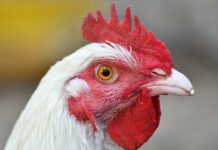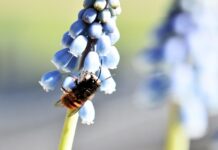No July passes without baseball’s All-Star game and no All-Star game passes without most middle-aged farmboys recalling childhood dreams of playing professional baseball.
That’s what we did two generations ago: We played baseball in daylight, we listened to baseball in twilight, we dreamt baseball at night. My baseball dreams reflected my southern Illinois roots. I was sure I would replace Dick Groat as shortstop for the St. Louis Cardinals. Somehow those dreams had me playing between the never-to-age Ken Boyer at third base and the equally ageless Julian Javier at second.
What, the 1964 Cardinals would not grow old while they waited for me to grow up? Only in my dreams, friend; only in my dreams.
Field of dreams
Not surprisingly, the cows on our dairy farm played an important part in my conjured-up future of smooth double plays, luxurious airline travel and endless autograph signing. The reason was simple: Our farm’s baseball field was, indeed, a field, the permanent heifer pasture across the road from our farmhouse.
And what a field it was. Worn-out disk blades served as bases, fence posts served as foul poles and gawking, young Holsteins often roamed left and right fields alongside my brothers, sister and me. The heifers, of course, were terrible fans. Not one ever cheered a home run and, more often than not, their late night grazing usually left fresh, ah, fertilizer in our already less-than-perfect base paths. Heifers though they were, did they have to act like pigs?
These unique problems were big problems to my brothers, Richard and David, my sister, Peggy, and me because we played baseball almost every day of every summer in the mid-1960s. Most games occurred after the table-bending, midday meal as our parents napped for 30 or so minutes.
Guebert rules
Some unique problems led to unique rules. For example, since each “team” only had two players per side, all games were played “half-field,” meaning each batter had to “call” which field, either left or right, was in play. Any ball then hit to the opposite field was a foul ball. Also, “ghost” runners often had to take over for you if you and your teammate were both on base and there were less than three outs. Hey, somebody had to bat and while I never recall a ghost runner ever getting thrown out at home, I also never recall a “ghost” batter ever getting a hit.
The real deal
This midday baseball eventually landed David and me on a team of farm-based baseball wannabes. Each of us was strong, talented, and wildly undisciplined. And we were clearly farmboys right down to our uniforms-blue jeans, white T-shirts, white socks and whatever hat that did not smell like cows. The team was organized by the father of one of the players a town over. Ernie D., a merchandiser for the local grain company, was born to coach; he was quiet, patient and always teaching. He had to be all those things — as well as trainer, chauffeur, employment counselor and sandwich maker — to whip us plow horses into race horses.
That first summer, our rag-tag team played a rag-tag schedule of teams far better dressed, far better trained and far better disciplined than us. I don’t remember winning one game, but I do remember getting spiked by a far-dirtier player as I covered third base in a game against the American Legion team in Chester, the county seat.
Then came uniforms
My second year of organized baseball delivered a big win before the season even began. Somehow Coach D. had scraped up complete uniforms-cotton pants, long stirrup leggings, pullover shirts with numbers and, of course, the names of several local watering holes stenciled across the shirts’ shoulders. Resplendent though we were, we remained the same team of untrained ponies pulling every way but together. Even at that, we usually ended each warm night with a cold drink and dreams of playing in the major leagues.
Most of us pasture boys still do.













